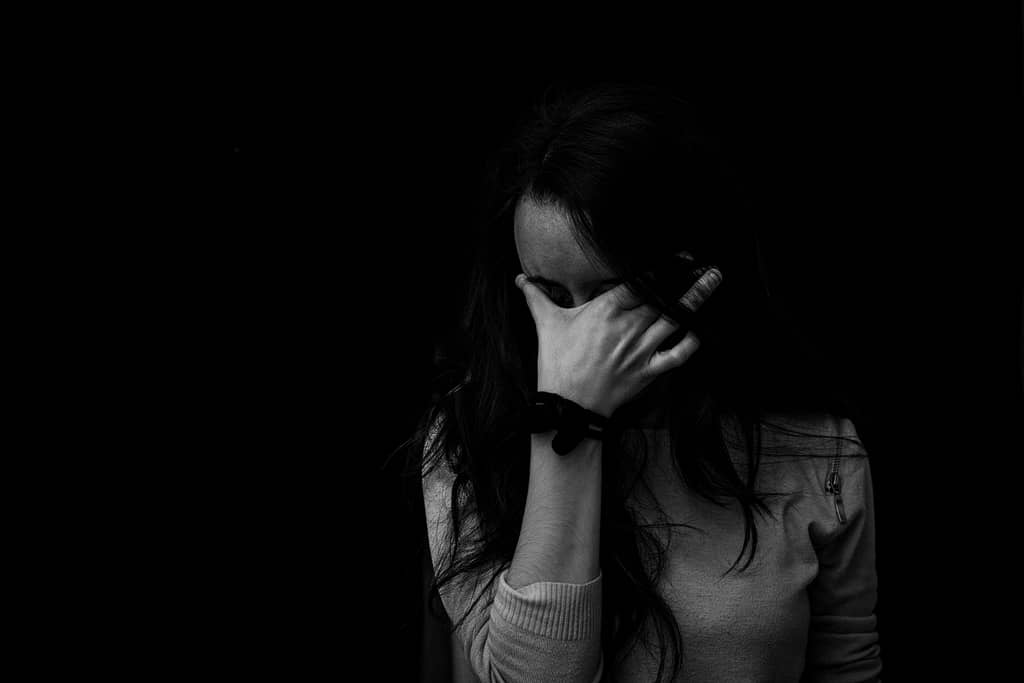
Introduction:
Depression is a complex and multifaceted mental health condition that affects millions of people worldwide. It is more than just feeling sad or having a bad day; it can profoundly impact a person’s thoughts, feelings, and daily functioning. Understanding the stages of depression and the best ways to recover can help individuals and their loved ones navigate this challenging journey.

The Stages of Depression
Mild Depression (Initial Stage):
- Symptoms: Persistent sadness, low energy, minor changes in sleep and appetite, reduced interest in activities, and mild irritability.
- Impact: These symptoms are subtle and might not significantly impair daily functioning, making it easy to overlook or dismiss them as temporary blues.
Moderate Depression:
- Symptoms: Intensified sadness and hopelessness, noticeable decrease in interest or pleasure in most activities, significant changes in sleep and appetite, reduced energy, and difficulty concentrating.
- Impact: Symptoms start affecting daily life, work, and social interactions. Physical symptoms such as aches and pains might also become more apparent. Alcohol or substance abuse is common in this stage in an attempt numb oneself.
Severe Depression:
- Symptoms: Extreme sadness and hopelessness, loss of interest in almost all activities, severe changes in sleep and appetite, profound fatigue, difficulty concentrating, feelings of worthlessness or guilt, and recurrent thoughts of death or suicide.
- Impact: Severe impairment in all areas of life, including work, social interactions, and self-care. At this stage, professional intervention is critical.
How to Overcome Depression
Overcoming depression involves a multi-faceted approach, combining professional treatment, lifestyle adjustments, and social support. Here are some effective strategies:
Seek Professional Help:
- Therapy:
- Cognitive Behavioral Therapy (CBT): Focuses on identifying and changing negative thought patterns and behaviors.
- Interpersonal Therapy (IPT): Aims to improve relationships and communication skills.
- Psychodynamic Therapy: Explores past experiences and emotional conflicts to gain insights into current issues.
- Medication: Antidepressants can help correct chemical imbalances in the brain. It’s essential to work with a healthcare provider to find the right medication and dosage.
Build a Support Network:
- Open Communication: Talk to trusted friends and family about your feelings. Sharing your experience can provide relief and support.
- Support Groups: Joining groups with others who have similar experiences can offer a sense of community and understanding.
- Set Boundaries: Protect your mental health by setting limits with people or situations that exacerbate your depression.
Lifestyle Changes:
This can be one of the hardest strategies to impliment due to a complete lack of motivation and hopelessness.
- Exercise: Regular physical activity boosts mood by releasing endorphins and improving overall health. Aim for at least 30 minutes of moderate exercise most days.
- Healthy Diet: Eating a balanced diet rich in fruits, vegetables, whole grains, and lean proteins can support brain health. Nutrients like omega-3 fatty acids, B vitamins, and vitamin D are particularly beneficial.
- Sleep Hygiene: Establish a regular sleep schedule by going to bed and waking up at the same time every day. Create a restful environment and avoid screens before bedtime.
Mindfulness and Relaxation Techniques:
- Mindfulness Meditation: Helps you stay grounded and reduce the impact of negative thoughts.
- Relaxation Techniques: Practices such as deep breathing, progressive muscle relaxation, and yoga can reduce stress and improve mental well-being.
Set Realistic Goals:
- Small Steps: Break tasks into manageable steps and set achievable goals. Celebrate small victories to build momentum.
- Routine: Establishing a daily routine can provide structure and a sense of normalcy, which can be comforting during recovery.
Avoid Alcohol and Drugs:
- Substance Use: Avoid using alcohol and drugs as they can worsen depression symptoms and interfere with treatment. Seek help if substance use is a concern. Alcohol and drug abuse can also exacerbate suicidal feelings.
Conclusion
Depression is a serious but treatable condition. Recognizing the stages of depression allows for timely intervention, and implementing effective recovery strategies can help individuals regain control of their lives. If you or someone you know is struggling with depression, seeking professional help and building a supportive network are crucial steps towards recovery. Remember, overcoming depression is a journey, and with the right support and strategies, it is possible to find hope and healing.
If you need help with depresion
Embracing Empathy: The Power of a Hug
The Negative Consequences of Loneliness
Afterword:
Please allow me to introduce myself. My name is Steve Fitz and I’m a specialized Life Coach, specializing in relationship problems and depression. If you or anyone you know needs help with any issues regarding depression or relationships please get in touch. My contact details can be found on my face book page. Sessions are normally carried out through a Zoom call, therefore no matter where you are in the world, we can still connect.
Vitabiotics Ultra Vitamin D Tablets 1000IU Optimum Level - 96 Tablets
£3.99 (as of August 15, 2024 13:36 GMT +00:00 - More infoProduct prices and availability are accurate as of the date/time indicated and are subject to change. Any price and availability information displayed on [relevant Amazon Site(s), as applicable] at the time of purchase will apply to the purchase of this product.)Vitamin D3 4000 IU – 400 High Strength Vitamin D Tablets (1+ Year Supply) – Vegetarian Immune System Vitamins - One A Day Vitamin D Supplement - VIT D3 As Cholecalciferol - Made in The UK
£7.49 (as of August 15, 2024 13:36 GMT +00:00 - More infoProduct prices and availability are accurate as of the date/time indicated and are subject to change. Any price and availability information displayed on [relevant Amazon Site(s), as applicable] at the time of purchase will apply to the purchase of this product.)Vitamin D3 4000 iu & Vitamin K2 MK7 100μg - 1 Year Supply, 365 Easy-Swallow Vitamin D3 K2 Tablets, 1-A-Day High Strength Vegetarian D3 and K2 Vitamin Supplements, UK Made Vitamin D Tablets
£9.99 (as of August 15, 2024 13:36 GMT +00:00 - More infoProduct prices and availability are accurate as of the date/time indicated and are subject to change. Any price and availability information displayed on [relevant Amazon Site(s), as applicable] at the time of purchase will apply to the purchase of this product.)Optimum Nutrition Micronised Creatine Powder, 100% Pure Creatine Monohydrate Powder for Performance and Muscle Power, Unflavoured Shake, 186 Servings, 634 g
£31.49 (as of August 15, 2024 13:36 GMT +00:00 - More infoProduct prices and availability are accurate as of the date/time indicated and are subject to change. Any price and availability information displayed on [relevant Amazon Site(s), as applicable] at the time of purchase will apply to the purchase of this product.)Vitabiotics Ultra Iron Tablets Supplement, Boosts Energy, Vitality, Power and Immunity and Supports against Anemia, Tiredness and Fatigue with added Vitamin C Vitamin B12 and Folic Acid ( Vitamin B9 )
£3.98 (as of August 15, 2024 13:36 GMT +00:00 - More infoProduct prices and availability are accurate as of the date/time indicated and are subject to change. Any price and availability information displayed on [relevant Amazon Site(s), as applicable] at the time of purchase will apply to the purchase of this product.)Omega 3 Fish Oil 2000mg, EPA 660mg DHA 440mg per Daily Serving. 120 Capsules (2 Months Supply). Supports Heart, Brain Function and Eye Health. 2 Capsules Per Serving
£9.97 (as of August 15, 2024 13:36 GMT +00:00 - More infoProduct prices and availability are accurate as of the date/time indicated and are subject to change. Any price and availability information displayed on [relevant Amazon Site(s), as applicable] at the time of purchase will apply to the purchase of this product.)Magnesium Glycinate 4-in-1 Complex 2000mg - 449mg Elemental Magnesium High Strength Magnesium Supplements - Magnesium Bisglycinate,Citrate, Malate, Oxide - 120 Capsules - Vegan UK Made by New Leaf
£12.94 (as of August 15, 2024 13:36 GMT +00:00 - More infoProduct prices and availability are accurate as of the date/time indicated and are subject to change. Any price and availability information displayed on [relevant Amazon Site(s), as applicable] at the time of purchase will apply to the purchase of this product.)Phizz Electrolytes, Multivitamin & Hydration Tablets - 20 Effervescent Rehydration Electrolyte Tablets - 18 Vitamins & Minerals, Vitamin C, Vegan, Vegetarian & Low Calorie (Orange, 20 Tablets)
£5.33 (as of August 15, 2024 13:36 GMT +00:00 - More infoProduct prices and availability are accurate as of the date/time indicated and are subject to change. Any price and availability information displayed on [relevant Amazon Site(s), as applicable] at the time of purchase will apply to the purchase of this product.)Nutrition Geeks Turmeric Tablets 2000 mg with Black Pepper & Ginger, High Strength Curcumin Supplements, Vegan and Gluten Free, UK Made, 120 Count
£6.99 (as of August 15, 2024 13:36 GMT +00:00 - More infoProduct prices and availability are accurate as of the date/time indicated and are subject to change. Any price and availability information displayed on [relevant Amazon Site(s), as applicable] at the time of purchase will apply to the purchase of this product.)Gentle Iron Tablets High Strength 28mg - 400 Tablets (6+ Months Supply) - Vegan Iron Bisglycinate - Energy Tablets for Tiredness and Fatigue - High Absorption Iron Supplements for Women and Men
£8.48 (as of August 15, 2024 13:36 GMT +00:00 - More infoProduct prices and availability are accurate as of the date/time indicated and are subject to change. Any price and availability information displayed on [relevant Amazon Site(s), as applicable] at the time of purchase will apply to the purchase of this product.)Manifest
£6.99 (as of August 15, 2024 13:36 GMT +00:00 - More infoProduct prices and availability are accurate as of the date/time indicated and are subject to change. Any price and availability information displayed on [relevant Amazon Site(s), as applicable] at the time of purchase will apply to the purchase of this product.)The Majorly Awkward BFF Dramas of Lottie Brooks (Lottie Brooks, 6)
£11.49 (as of August 15, 2024 13:36 GMT +00:00 - More infoProduct prices and availability are accurate as of the date/time indicated and are subject to change. Any price and availability information displayed on [relevant Amazon Site(s), as applicable] at the time of purchase will apply to the purchase of this product.)Atomic Habits: The life-changing million-copy #1 bestseller
£10.00 (as of August 15, 2024 13:36 GMT +00:00 - More infoProduct prices and availability are accurate as of the date/time indicated and are subject to change. Any price and availability information displayed on [relevant Amazon Site(s), as applicable] at the time of purchase will apply to the purchase of this product.)Why Has Nobody Told Me This Before?: The Sunday Times bestseller, with over 1 million copies sold
£8.00 (as of August 15, 2024 13:36 GMT +00:00 - More infoProduct prices and availability are accurate as of the date/time indicated and are subject to change. Any price and availability information displayed on [relevant Amazon Site(s), as applicable] at the time of purchase will apply to the purchase of this product.)The Boy, The Mole, The Fox and The Horse
£9.00 (as of August 15, 2024 13:36 GMT +00:00 - More infoProduct prices and availability are accurate as of the date/time indicated and are subject to change. Any price and availability information displayed on [relevant Amazon Site(s), as applicable] at the time of purchase will apply to the purchase of this product.)Can't Hurt Me: Master Your Mind and Defy the Odds
£16.62 (as of August 15, 2024 13:36 GMT +00:00 - More infoProduct prices and availability are accurate as of the date/time indicated and are subject to change. Any price and availability information displayed on [relevant Amazon Site(s), as applicable] at the time of purchase will apply to the purchase of this product.)The Twat Files
£11.37 (as of August 15, 2024 13:36 GMT +00:00 - More infoProduct prices and availability are accurate as of the date/time indicated and are subject to change. Any price and availability information displayed on [relevant Amazon Site(s), as applicable] at the time of purchase will apply to the purchase of this product.)The Courage to Be Disliked : How to Free Yourself, Change Your Life and Achieve Real Happiness
£20.12 (as of August 15, 2024 13:36 GMT +00:00 - More infoProduct prices and availability are accurate as of the date/time indicated and are subject to change. Any price and availability information displayed on [relevant Amazon Site(s), as applicable] at the time of purchase will apply to the purchase of this product.)The Courage To Be Disliked: A single book can change your life (Courage To series) (Cover may vary)
£6.50 (as of August 15, 2024 13:36 GMT +00:00 - More infoProduct prices and availability are accurate as of the date/time indicated and are subject to change. Any price and availability information displayed on [relevant Amazon Site(s), as applicable] at the time of purchase will apply to the purchase of this product.)The Hairy Bikers Eat to Beat Type 2 Diabetes: 80 delicious & filling recipes to get your health back on track
£8.99 (as of August 15, 2024 13:36 GMT +00:00 - More infoProduct prices and availability are accurate as of the date/time indicated and are subject to change. Any price and availability information displayed on [relevant Amazon Site(s), as applicable] at the time of purchase will apply to the purchase of this product.)Please consider subscribing to our monthly newsletter





















Pingback: Embracing Empathy: The Power of a Hug - My Daily Inspiration
Pingback: The Negative Consequences of Loneliness - My Daily Inspiration
Comments are closed.